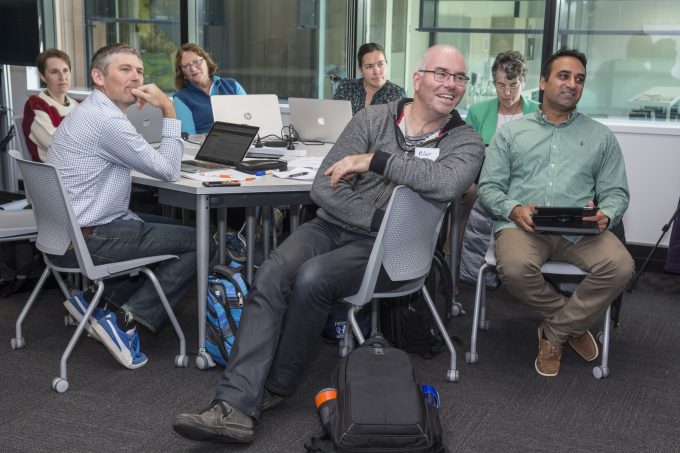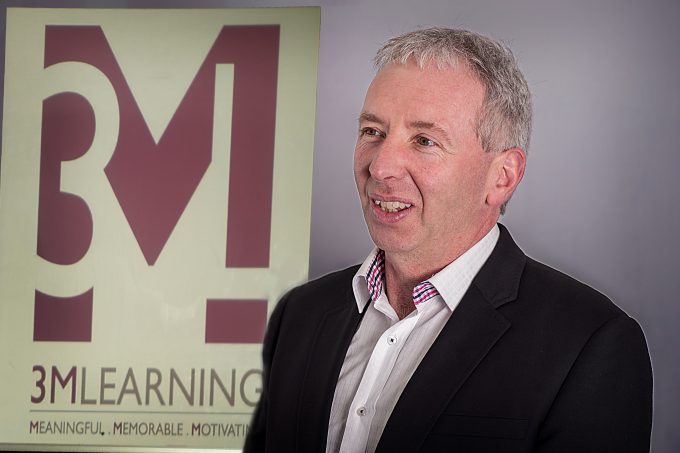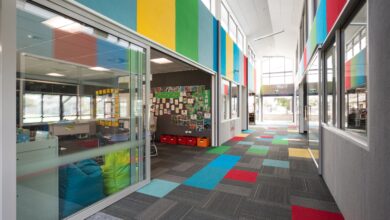Upskilling to lead students into a digital future – Is now the time?

Some days it may feel like students are leading their teachers into the digital age, but that’s not the case.
Even the students who arrived at school already knowing how to code, are learning about what’s acceptable digital behaviour from their teachers. Whether teachers have the technological skills or not, they have an impact; so it’s vital to make sure that they do, in fact, have the skills.
The Ministry of Education has been shaking up its approach to professional learning and development (PLD). It claims the new system is focused on delivering the right support at the right time to the schools, kura and Communities of Learning/Kāhui Ako that “need it most”. The changes were first disclosed in 2017, and planned to roll-out over two years; we are now about nine months into the transition. A significant update in December meant that a planned transfer of centrally-funded PLD from the Ministry of Education to the Education Council was stopped.
“Options for the establishment of a comprehensive education advisory service that may oversee all centrally-funded professional learning and development are still to be developed,” the MoE has said on the matter.
Priority areas of PLD have been identified to include digital fluency, pāngarau/maths, pūtaiao/science, te reo matatini (pānui, tuhituhi, kōrero)/reading and writing; and so the Ministry has asked schools, kura and Kāhui Ako to identify the priority areas in which they need further support and development.
For schools, there are two ways to approach PLD: your local education advisor may contact you to advise that you are eligible for PLD support, or you can apply yourself once you have identified an achievement challenge that matches criteria.
There are a number of avenues of support for the proposal process, such as a local MoE advisor or a PLD facilitator.
Here are the questions that your MoE proposal should answer:
- What are you trying to achieve?
- How did you reach this conclusion?
- How does this relate to the overall goals or strategic direction of the school, kura or CoL?
- Details of the proposal?
- Who else will be leading the PLD?
- What other internal expertise do you have to support the PLD?
- What external expertise do you need?
- What other PLD will you be undertaking during this period?
What is clear here, is that making sure your PLD will better the learning environment of your school, is key. This is regardless of whether you are looking to be centrally funded or self-funded.
The Ministry has two separate lists of PLD facilitators, one for centrally funded and one for self-funded. It’s also possible to search by region.
Upskilling programmes range in scope, length and structure. Some have a more academic feel and would require more of a time commitment outside school, while others are designed for flexibility and integrate with day-to-day school life. Taking place after-hours, over the school holidays or online are a few of the options. In many cases, the course workload can be spread over a year or two and various postgraduate qualifications are achievable. For those looking to attain a Master’s degree, many of the postgrad certificates can be undertaken as part of a postgrad diploma or degree.
Regarding an emphasis on digital skills, these PLD courses are targeted for a range of teachers; those who already teach tech and want to advance their skills, those who want to move into teaching tech, and those needing to integrate tech learning into their lesson plans.
With the Ministry recognising the need to upskill teachers as an investment in New Zealand’s digital future, now might be a good time for schools to put together a PLD proposal.
Digital skills education for teachers“In today’s world, any learner in school without access to comprehensive digital technologies education will not have the same opportunities as those who do.”
The changes to the digital technologies curriculum over the past few years have allowed greater opportunities for students to prepare to enter a workforce with an increasing reliance on digital skills and IT capability. We know how difficult it can be for schools and teachers to find time and fund the professional development required to support you in delivering the new standards, which is why SIGNAL ICT Graduate School has a programme tailored to help. The Educate programme is an at-work study programme, led by Professor Tim Bell and Distinguished Professor Niki Davis, delivered over two years. Each of the two one-year courses is delivered as a short intensive workshop during the first term break with ongoing self-study for the rest of the school year. The workshop includes hands-on activities, seminars and visits to local industry in the South Island. Patrick Baker, a teacher at Middleton Grange for 15 years, has been part of the Educate programme and says: “Educate has enabled me to think about aspects of all my teaching, not limited to programming or computer science.” Patrick applauds this type of learning and the environments as “…invigorating, and the content delivery and support was second to none.” |
Give someone a hammer and everything looks like a nailIn the same way that a hammer can be used creatively or destructively, teachers, parents and students are gradually realising that the technical tsunami that has engulfed us during the last decade, is comprised of multiple layers of positives and negatives.
It may sound obvious, but students don’t always benefit from better or more devices and associated screen-time – they do, however, benefit greatly from significantly enhanced learning experiences that help develop smarter brains and more marketable skills. The world continues to change in an exponential fashion, fuelled by the digitisation, automation and acceleration of processes – many of which were traditionally carried out by people. AI, robots and other technologies are taking increasingly large and irreversible bites out of our skill-sets, with profound implications for the future of humanity and jobs. The skills that cannot be digitised and automated are becoming increasingly valuable in the workplace – fortunately, many of our great teachers are already focussing on the development of these very skills, such as communication, collaboration, creativity, problem solving, and showing empathy to others. These skills can indeed be developed and enhanced by using technology in our classrooms, if we are very careful about how it is done. Without this care, these very same skills can be crushed – just like when you hit your thumb with a hammer! “When I work with school leaders, teachers, students and communities,” says Martin Hughes (3M Learning), “I have a relentless focus on simplifying people’s relationships with technology while ensuring that it is used effectively and creatively, saving time and stress for teachers and embedding high expectations for our students. By making it significantly easier for teachers to differentiate, scaffold and feedback to students, everybody wins!” |











